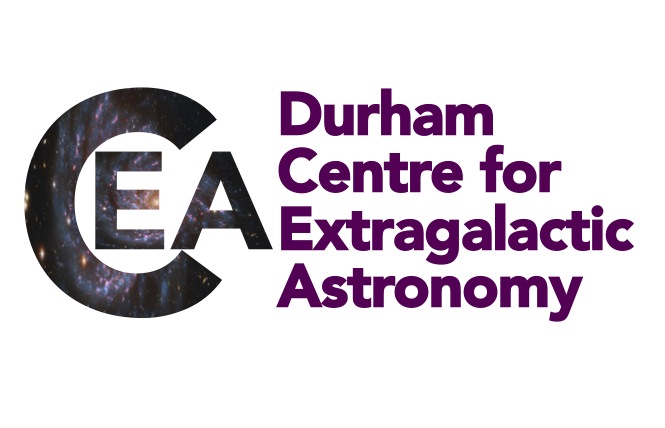|
Mission: Observational astronomy and astrophysics is the fundamental foundation of our understanding of the formation and evolution of stars, galaxies, black holes and large-scale structure in the Universe. The Centre for Extragalactic Astronomy’s core mission is to extend society’s knowledge and understanding of the Universe we inhabit. We achieve this by supporting our internationally-leading staff to pursue innovative research programmes and to exploit these to train the next generation of world class early-stage researchers. The expertise of our staff encompasses the key observational techniques needed to develop and exploit the next generation of multi-wavelength surveys for galaxies, black holes and large-scale structure, and the detailed study of their properties.
Research programme: The CEA's research programme makes extensive use of the world's forefront observational facilities to test advanced theoretical models of galaxy and structure formation developed in Durham. We utilise the largest ground-based optical and near-infrared telescopes including those in Chile, Hawaii, Australia and the Canary Islands, and we have been particularly successful at obtaining time on the Hubble Space Telescope and the Atacama Large Millimeter Array. The multi-wavelength aspects of our programme focus on sub-millimetre and radio observations from ground-based facilities in Hawaii, Spain, Australia and the Americas and X-ray observations from space-based facilities such as the Chandra, Newton and NuSTAR X-ray satellites. A key component of our research explores mass accretion onto black holes. Follow the Research Topics link to find out more about our research.
We also closely interact with staff in the Centre for Advanced Instrumentation to aid the development and commissioning of instrumentation purpose-built for studies relevant to this area. In addition we pursue a number of common projects on galaxy formation, large-scale structure and the nature of the cosmic dark matter with theoretical research staff within the Institute for Computational Cosmology (ICC) at Durham.
The Centre for Extragalactic Astronomy is one of three major partners in the Durham Astronomy Research Cluster. We welcome requests from individuals with strong science backgrounds who wish to join us as Research Fellows, Postdoctoral Researchers or Graduate Students.
Our latest publications
## DO NOT ALTER THIS PHP CODE 2024 Monthly Notices of the Royal Astronomical Society, 529, 802 (on-line)Harvey D, Massey R
Weak gravitational lensing measurements of Abell 2744 using JWST and shear measurement algorithm pyRRG-JWST
2024 Monthly Notices of the Royal Astronomical Society, 529, 2290 (on-line)
Smail I
Obscured star formation in clusters at z = 1.6-2.0: massive galaxy formation and the reversal of the star formation-density relation
2024 The Astrophysical Journal, 965, 96 (on-line)
Mason P, Hakala P, Wu K, Barrett P, Ilkiewicz K, Littlefield C, Monroy L, Sezer H, Jablonski F, Garnavich P, Szkody P, Ramsay G, Duffy C, Scaringi S
TESS Photometry of AM Her and AR UMa: Binary Parameters, Cyclotron Emission Modeling, and Mass Transfer Duty Cycles
2024 The Astrophysical Journal, 965, 108 (on-line)
Uematsu R, Ueda Y, Kohno K, Toba Y, Yamada S, Smail I, Umehata H, Fujimoto S, Hatsukade B, Ao Y, Bauer F, Brammer G, Dessauges-Zavadsky M, Espada D, Jolly J, Koekemoer A, Kokorev V, Magdis G, Oguri M, Sun F
ALMA Lensing Cluster Survey: Full Spectral Energy Distribution Analysis of z ∼ 0.5–6 Lensed Galaxies Detected with millimeter Observations
Contact Details
Centre for Extragalactic Astronomy,Ogden Centre for Fundament Physics - West,
Department of Physics,
Durham University,
South Road,
Durham DH1 3LE
Tel: 44 (0)191 3343635
Latest News
June 2023:
Durham scientists reveal nearly
2 million galaxies, quasars and
stars in the distant Universe
March 2023:
'Ultramassive' black hole
discovered by Durham
astronomers
November 2022:
Durham graduate named new
generation astronaut
July 2022:
* 12 Durham astronomers
in top 100 UK rankings
Conferences/Workshops

Durham-Edinburgh
eXtragalactic Workshop,
Edinburgh, Jan 10-11th 2023.






